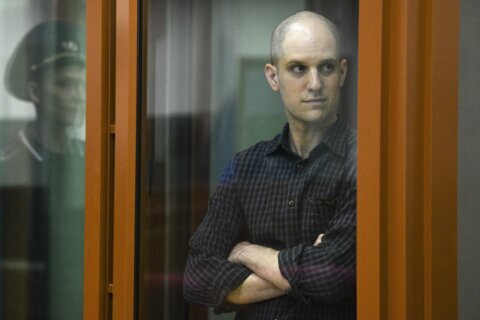The college admissions process can be overwhelming for any student, but it can be especially challenging for those with learning disabilities.
“Many of the students we work with struggle with organizational skills, anxiety and writing,” Eric Endlich, founder of Top College Counselors, a college consulting company that works with neurodivergent students, wrote in an email. “So the major tasks involved in the process — building a college list, crafting compelling essays and completing their applications on time — all present challenges.”
College applications take a lot of time, research and planning, and they often require executive functioning skills that some students with learning disabilities may lack or struggle with, experts say. For these students, it’s crucial to break the application tasks down individually to simplify the process and start on them as early as possible. Creating and sticking to personal deadlines, as well as being aware of each school’s deadlines, can help avoid procrastination and alleviate related stress.
While the procedural part is stressful, experts say students with learning disabilities who are applying to college often struggle most with deeper questions that are unique to their situation.
Should I Disclose My Learning Disability on My College Application?
This is often one of the first questions students and parents ask and one of the most misunderstood parts of the admissions process, experts say. There is no requirement to disclose a learning disability on a college application, and it’s illegal for colleges to discriminate against students with any kind of disability.
“People think that if you disclose your disability that they’ll definitely not admit you. Some think if you disclose your disability it’s going to give you this huge jump and you’re going to go over these other students. There’s no data supporting any of that,” says Elizabeth Hamblet, an independent college learning disability specialist and author of “Seven Steps to College Success: A Pathway for Students with Disabilities.”
“The admissions deans that I have spoken to say that neither of those things is true,” she says. “Disclosure should be the student’s choice.”
[READ: How Colleges Choose Which Students to Admit.]
Some experts say disclosure can provide valuable context to a student’s academic profile, particularly for those who have a low GPA or struggle in certain subjects, score poorly on standardized tests like the ACT or SAT or have significant changes in grades while in high school.
“For example, if a student is diagnosed with ADHD during high school, starts taking medication and demonstrates improved grades, it might actually work to a student’s advantage to explain this course of events,” Endlich says. “I also work with many students who are proud of their autism or neurodivergence as a central part of their identity and choose to write about it proudly in their essays.”
Some admissions officers may see it as an example of a student’s character and perseverance, says Jordan Wright, chief clinical officer at Parallel Learning, an advocacy group that helps students with learning disabilities get evaluated and the needed accommodations and resources.
“Students who have had some challenges and setbacks but have pushed forward and pushed through them with support of others and reasonable accommodations, colleges and universities tend to love that,” he says. “So I tend to discourage people from hiding their learning differences in their application.”
Students can disclose information either through a personal essay, on the “Additional Information” section on the Common App, through a letter from their school counselor or directly through a conversation with an admissions counselor. While students may focus on their learning disability in their application, it may not always be necessary, says Liz Doe Stone, a senior private counselor for Top Tier Admissions, an admissions consulting company.
“If it’s not something that has had a really dramatic effect, like a particular dip in grades, we wouldn’t recommend students disclose that or work it into an essay just because most colleges want to know about how you think, what excites you academically, how you’ve contributed to your community, and the type of leadership you’ve shown in school or your community,” she says. “So you wouldn’t want to dwell or take up precious space in your application materials trying to explain something.”
How Do I Decide Which Colleges to Apply to?
Researching colleges and deciding which to apply to can be another stressful part of the admissions process. For students with learning disabilities, it’s important to find schools that will meet their specific needs. Not all schools offer the same types of support, and what that support looks like will likely be much different than what students were used to in grades K-12 when they were on either an individualized education program or a 504 plan, Hamblet says.
“There’s so much misunderstanding about what happens when students get to college,” she says. “People think IEPs are still valid, which they’re not. People think 504 plans are still valid in college, and they’re not. It’s really important to understand all of this because, in some cases, students have been receiving accommodations that they’re not going to get in college.”
[READ: 9 College Application Tasks for the Summer Before Senior Year]
Any school that accepts federal money is legally required to provide accommodations for students with disabilities, per the Americans with Disabilities Act. For example, students who need extra time on tests, need to take exams in a separate room free of distractions or need to record a lecture due to attention deficit are allowed to do so.
Some schools do the bare minimum to meet these students’ needs, while others go above and beyond, Hamblet says.
For example, a student who is blind or visually impaired is eligible to receive the course’s text in an alternative format, such as audio or larger print. For a blind student, a college must make sure any text a professor assigns as a reading is accessible and can be read by screen-reading software. The school isn’t required to provide the software, but some do, and it’s worth researching how far each school extends its support, she says.
Many schools offer fee-based programs that allow students with learning disabilities to pay for services that colleges aren’t required to provide.
For example, the Strategic Alternative Learning Techniques (SALT) Center at the University of Arizona offers tutoring, workshops on reading strategies and exam prep, educational technology such as screen-reading software and note-taking apps, and psychological wellness services. Students must pay for these services.
Some schools, such as Beacon College in Florida and Landmark College in Vermont, exist specifically to serve students with learning disabilities.
“What I want to get away from and be cautious of is that when people learn that there are schools with fee-based programs or two that are just for students with disabilities, they may think they should direct all their students with disabilities to these colleges,” Hamblet says. “But not everybody needs that level of support or wants it.”
Students should determine the level of support they’ll need, then research a school’s website to see if it offers any support specific to a certain learning disability, Hamblet says.
All the different types of support offered aren’t always listed, so before applying students should contact the disability services office to learn the full scope of services.
[READ: Campus Support Every First-Year College Student Should Use.]
“Accommodations represent the foundational level of support that every college provides, though of course the staffing levels and backgrounds can vary quite a bit,” Endlich says. “Only a fraction of colleges offer comprehensive support programs with academic coaching, peer mentoring, workshops, social events, priority registration and other components.”
When completing the application and going through the admissions process, it’s best to work with a team that includes teachers, parents, counselors and mentors, Wright says. This can help divide up certain tasks and make the process successful.
“Many students, especially with learning and thinking differences, have had a lot of experiences where they have not succeeded,” he says. “They’ve been given these large projects and not given the accommodations they need to succeed or the supports they need to succeed, so they’ve had these experiences where it’s not been successful, and we don’t want to replicate that. We don’t want to trigger the emotional memory of them not succeeding in these large, cumbersome projects.”
Searching for a college? Get ourcomplete rankingsof Best Colleges.
More from U.S. News
How to Get Into College: 9 Strategies
6 Common College Admissions Myths
How to Navigate College Admissions With a Learning Disability originally appeared on usnews.com







